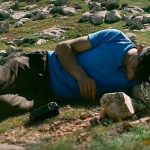Canadian-Lebanese film director Elie El Semaan’s new film, ‘Honeymoonish’, will be released on Netflix this year. El Semaan has a versatile body of work including music videos, stage musicals, TV commercials and, since 2021, three drama series that have all successfully featured on Shahid. In a chat with Vijaya Cherian, he talks about his career, his upcoming Netflix debut and the rising popularity of Arabic content.
Tell us about your upcoming feature film, slated for release on Netflix this year.
It is a Kuwaiti film, produced by Eagle Films, and intended to be a light romantic comedy! It is in postproduction right now. It is the first Kuwaiti movie to be filmed in Lebanon, and stars Nour Al-Ghandour and Mahmoud Bou Shehri. I think people all over the region will enjoy it, not just in the Gulf! This film is special because it has the high international standard that Netflix always offers and also Eagle Films in Lebanon were very cautious to maintain. The film was shot in Lebanon because that’s where the story takes place, so all the Kuwaiti actors flew in to Beirut.
Tell us what Shatti Ya Beirut was about. What do you think made it so successful – I believe it was a big hit in this region?
Shatti Ya Beirut is a love story between a Syrian and a Lebanese living in Beirut, and the unexpected issues that crop up between their two families. I think what contributed most is how genuine it was, how each person watching it could relate to it and how it touched the audience. We enjoyed shooting it, and that also reflected on screen. Shatti Ya Beirut is one of those projects which I still enjoy watching.
What challenges did you face during the production, and how did you overcome them? We were shooting Shatti Ya Beirut during one of the most difficult periods in Lebanon, when the roads were blocked and the country had no fuel. We often struggled to make sure everyone had enough fuel to arrive on set. But it was a beautiful project for us all.
 How was it to work with a child with Down syndrome in Shatti Ya Beirut? How did that alter your directorial methods?
How was it to work with a child with Down syndrome in Shatti Ya Beirut? How did that alter your directorial methods?
We had Hasan Merhi, a seven-year-old boy with Down syndrome, working with us. We were very careful to make sure that he was always doing fine, and his parents were with us on set. As a director I couldn’t explain things to Hasan the way I would with the other actors, but we developed a special bond. The team knew we would have to work at his pace, so although the actors would be briefed and we would have rehearsed a scene, we knew that on set there may be a need to improvise with whatever Hasan might surprise us with! Hasan was friends with everyone on set. We also had a double for him, so any time he was tired, we would take shots with another kid from behind. I think with Hasan, it has become a lifetime special friendship! And people loved him so much that a little doll was made of his character.
How did winning the Murex d’Or for Best Drama Director for Shatti Ya Beirut affect your career and the perception of your work in the industry?
Acknowledgement of all your hard work and appreciation is always beautiful, although I do not work for awards. I do not work more if I win – I work more because I love what I do! Nevertheless, who doesn’t love getting an award for all the hard work?
Can you share some insights into the creative process behind the series that led to this recognition?
I had lots of meetings with the writer. There were lots of long nights discussing each scene and each character, and each line they would have to say! There was a lot of preparation with the whole crew, but the most important was the time I spent alone with the script – reading it, watching it all in my head before actually shooting it! I am the first person to watch the project in all its detail even before it was actually filmed! I believe preparation is key – and once on set, leave room for surprises!
How do you approach the psychology of film themes in the Arab region compared to Western cinema?
It is key to know your audience. Who are you targeting? I reject scripts which I cannot believe – by believe, I mean those that don’t resonate with the target audience! Because it simply will not work!
 Are there cultural nuances that you find particularly significant in shaping the storytelling process?
Are there cultural nuances that you find particularly significant in shaping the storytelling process?
For our Arab society, emotion is key! Not necessarily sad emotions, but any emotion, be it laughter, romance, revenge, fear, sadness … we are an emotional people and we like to see this on screen!
What inspired the decision to build an actual plane for Beirut 303, and what challenges did this present during production?
I wanted it to look real. I didn’t want to take the risk of graphics looking fake. I wanted it to be a real experience, and so having the plane in the water broken in two parts even helped the actors feel the scene. The challenges were many, needless to say – we built a real-life-size plane!
What considerations and challenges did you face while bringing together multiple prominent Arab names for Beirut 303?
It was a surprise for many in the industry and even for the audience, how we were able to get so many prominent Arab names into one project! But they were all great to work with and added value to the project! I think when you have a strong and successful production house backing you up, when you build a credible name for yourself and when your team is a great team, the actors feel safe and join you!
How has pan-Arab drama evolved, and what impact has it had on regional audiences?
It has raised the production value and exposure. It has brought cultures together. I think we are the only region which still finds this as something to question. In Hollywood, people of different cultures join together in series and films while people disregard their nationality and just focus on the art!
How do you address any controversies stirred up by pan-Arab drama, and how do you navigate such reactions?
I think any controversy stirred up only comes from people who are racist and ethnocentric. I ignore such comments! What could be negative about us all uniting to make better drama? Why do we have to always argue about this? Let’s just enjoy the art.
How do you see Khaleeji drama shaping the broader landscape of Arab television?
For me, watching any film or series is an experience. When I watch, I get to see and experience cultures, countries and societies I am not in direct contact with! Khaleeji drama helps us experience how Khaleeji families live, what struggles they face, what things are of value to them and how they may behave in their struggle. We are opening up to other cultures – through drama, we can break all man-made borders and let people in. This can break all preconceptions people have about the Gulf as well as the Middle East!
How do you foresee the future of filmmaking in relation to AI?
AI can be a tool to achieve even bigger things and create what we could have only dreamed of, but AI cannot feel and cannot evoke feelings! Art is based on human experience and emotions. AI is a beautiful tool made for us to make better projects, but can never replace us.
How does your approach differ when directing drama, compared to music videos?
Music videos are about portraying the best image of the singer and adding a new layer to the song. I as a director need to add value to the artist and the track and take it to the next level. In drama, it is about the story and the characters.
How has the industry evolved, and what opportunities or challenges does this present for directors?
We are all so exposed to projects from all around the world now because of digital platforms. This has raised the bar in terms of quality and story. Anything you do will now be compared to international productions, because people have access to them and can watch them. So directors, writers, producers, etc always have to be growing, researching and developing – this is the fastest-growing industry in the world.












































































